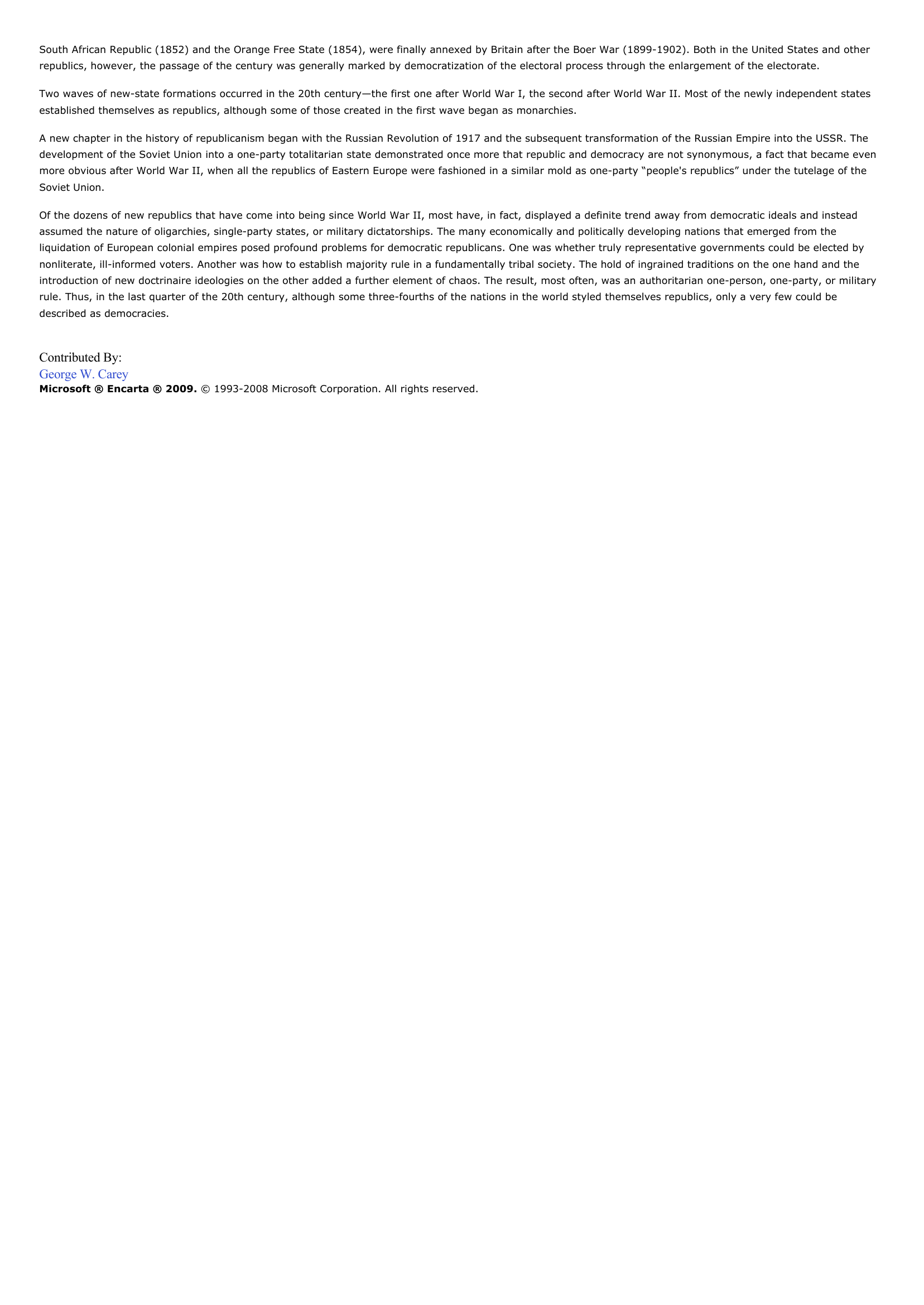Republic (government).
Publié le 10/05/2013

Extrait du document
«
South African Republic (1852) and the Orange Free State (1854), were finally annexed by Britain after the Boer War (1899-1902).
Both in the United States and otherrepublics, however, the passage of the century was generally marked by democratization of the electoral process through the enlargement of the electorate.
Two waves of new-state formations occurred in the 20th century—the first one after World War I, the second after World War II.
Most of the newly independent statesestablished themselves as republics, although some of those created in the first wave began as monarchies.
A new chapter in the history of republicanism began with the Russian Revolution of 1917 and the subsequent transformation of the Russian Empire into the USSR.
Thedevelopment of the Soviet Union into a one-party totalitarian state demonstrated once more that republic and democracy are not synonymous, a fact that became evenmore obvious after World War II, when all the republics of Eastern Europe were fashioned in a similar mold as one-party “people's republics” under the tutelage of theSoviet Union.
Of the dozens of new republics that have come into being since World War II, most have, in fact, displayed a definite trend away from democratic ideals and insteadassumed the nature of oligarchies, single-party states, or military dictatorships.
The many economically and politically developing nations that emerged from theliquidation of European colonial empires posed profound problems for democratic republicans.
One was whether truly representative governments could be elected bynonliterate, ill-informed voters.
Another was how to establish majority rule in a fundamentally tribal society.
The hold of ingrained traditions on the one hand and theintroduction of new doctrinaire ideologies on the other added a further element of chaos.
The result, most often, was an authoritarian one-person, one-party, or militaryrule.
Thus, in the last quarter of the 20th century, although some three-fourths of the nations in the world styled themselves republics, only a very few could bedescribed as democracies.
Contributed By:George W.
CareyMicrosoft ® Encarta ® 2009. © 1993-2008 Microsoft Corporation.
All rights reserved..
»
↓↓↓ APERÇU DU DOCUMENT ↓↓↓
Liens utiles
- GOVERNMENT : Le gouvernement Elections : Les élections The electoral system :
- The essence of Government is power; and power, lodged as it must be in human hands, will ever be liable to abuse ».
- Tecumseh: "Once a Happy Race" Early in the 19th century, Governor William Henry Harrison of the Indiana Territory made a number of treaties with Native Americans that involved the ceding of land to the United States government.
- Nelson Mandela's Inaugural Address Nobel Peace Prize winner and former political prisoner, Nelson Mandela, was elected president of the Republic of South Africa in April 1994 in the country's first multiracial elections.
- From "Resistance to Civil Government" - anthology.


